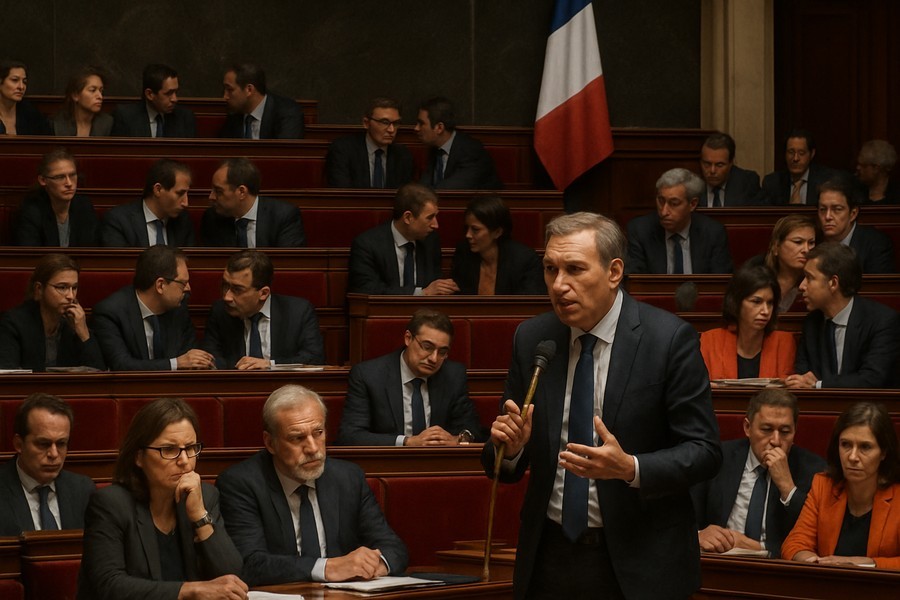
Political Strife in France: Is Macron's Government at Risk?
France's political stability could be tested with a potential governmental crisis looming. The Prime Minister is on the edge of facing two challenges in Parliament that could topple his recently established government. This could put President Macron in a tricky position, possibly leading him to call for sudden legislative elections.
The National Assembly, a significant but divided lower chamber, is scheduled to vote on motions of no-confidence put forward by the President's strongest rivals. These include the hard-left group and the far-right National Rally, led by a prominent political figure and her allies in the Parliament.
Prime Minister's Political Future Hangs in the Balance
The survival of the Prime Minister is not guaranteed. If he doesn't make it, the President has indicated, through a government spokesperson, that he might dissolve the National Assembly rather than appoint a replacement. The Prime Minister had stepped down from his position only a week ago, but the President reappointed him four days later.
If the National Assembly is dissolved, it would lead to legislative elections. The outcome of these elections is uncertain. However, the National Rally, which is currently the largest party in the National Assembly, believes it has a chance to make significant gains. If the President decides to go down this path again, having already tried it once in 2024, the National Rally might end up in government for the first time.
Details of the No-Confidence Votes
The leader of the National Rally has been pushing for fresh legislative elections for weeks, encouraged by polls suggesting that her party could see increased success, as it did after the last dissolution in 2024.
She and her right-wing ally filed their censure motion the day after the Prime Minister announced his new Cabinet. The motion argues that dissolving the National Assembly is the most democratic and effective way to break the current political stalemate.
A similar motion was filed by the hard-left group, claiming that ousting the Prime Minister could potentially lead to the removal of the President as well. However, the President has stated he has no plans to cut short his final presidential term, which is set to end in 2027.
A Close Vote
In order for the Prime Minister and his government to be ousted, a majority of the 577 National Assembly legislators would need to vote against him. The National Assembly is set to convene and vote on the hard-left group's motion first.
The National Rally and the hard-left group do not have enough votes to reach the required number of 289 on their own. Together, they have 210 lawmakers, still short of the required figure. If they manage to combine votes despite their ideological differences and personal rivalries, they would still need support from other opposition lawmakers.
While a left-wing group of 38 lawmakers, including the Ecologists, have stated they will vote against the Prime Minister, it is anticipated that a smaller left-wing group of 17 lawmakers, mostly communists, will do the same. However, even then, the opponents of the Prime Minister might still lack dozens of votes to reach the 289 mark.
There are some unpredictable factors, and the outcome could be very close. The President’s centrists are relying on their allies and hoping that the opposition Socialists and the conservative Republicans will not vote against the Prime Minister, as their votes could sway the results.
In an attempt to appeal to the Socialists, the Prime Minister has announced that he will pause a highly unpopular change to France's retirement age, which was set to gradually increase from 62 to 64. This significant reform could be abandoned to secure some stability in the National Assembly as they begin to discuss France's budget for 2026, a crucial matter for the European Union's second-largest economy.
Even if the Prime Minister manages to survive, more no-confidence motions could be filed against his government in the coming weeks during what are expected to be contentious budget talks. One political scientist noted the situation as "extremely precarious," pointing out that the chances of survival are "extremely thin."
